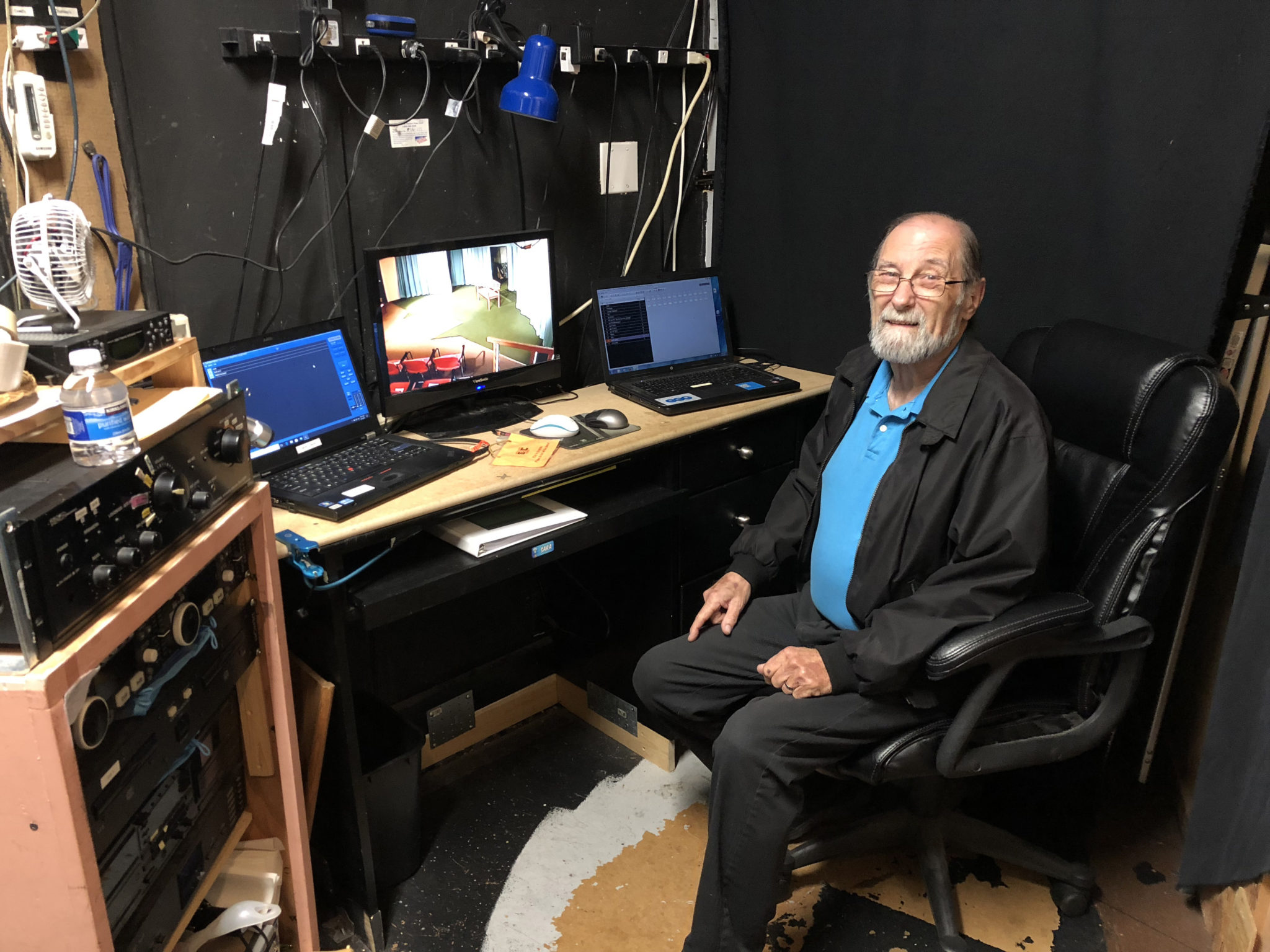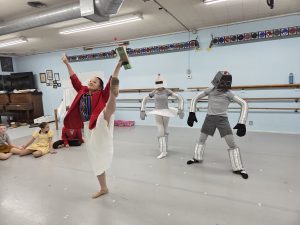At Santa Clara Players, a lot of work goes into putting on a production. The audience witnesses that firsthand when the actors bring the script to life on stage — but they don’t see everything else that goes on behind the scenes.
Santa Clara Players (SCP) President George Doeltz pulled back the curtains to reveal the legwork behind SCP’s show. He is a testament to the hard work that goes into a production as he handles many of the responsibilities.
“Set building, lighting — I do all of that,” Doeltz said. “It’s not bad, but mostly I do the set designs. Lighting, sound — depends on what it is. We share that amongst a couple of us.”
Before a production can begin, five members on the board of directors must decide on the plays they want to produce, as well as their directors. There are nine applicants for three play availabilities next year, according to Doeltz.
“We talk to them for a half hour or so, and then we sort out who we want to have here,” Doeltz said. “We look at their strengths. Some of them come in and say, ‘Oh, I’ll just do anything.’ Some of them come in and are very enthusiastic about a particular play. They have some good ideas already. That’s more points.”
After the selection committee finalizes its choices, the directors take it from there. They are responsible for putting it all together, which includes scheduling audition and rehearsal times, determining the play’s direction and who goes where on stage.
Rehearsals usually run for six weeks before showtime. But Doeltz tries to have the sets built before rehearsals for the cast to work with. He said it doesn’t take long to get a set up, but decorating and painting takes much longer.
However, designing the set doesn’t always go according to plan. During SCP’s production of “Rumors” two years ago, the script called for two floors, which they didn’t originally build.
“The more we read the script, the more we started working on it, there was enough references to upstairs and distance that I ended up building stairs offstage that went up to the second floor, or at least visually anyway,” Doeltz said. “But typically, most of the sets aren’t too complicated, which is part of the way we pick a script. If it’s a complex script, like where you really need a second floor, it ain’t going to happen.”
Although sets don’t vary much between plays, they try to create sets outside the box as often as they can.
“Next year, we got one play… it’s got a closet that the audience has to be able to see into, because there’s a body hanging from the closet,” Doeltz said. “And then that closet opens from the back to another room.”
While responsibilities like set building and lighting are left to Doeltz and others, the actors aren’t just relegated to the stage.
“They’re very collaborative — everybody’s got to work together to make it work,” Doeltz said. “When the actors are offstage, they help with pretty much whatever it takes to keep the thing flowing. ‘Helen on Wheels’ was an example of that; when they were doing set changes, the actors did a lot of the moving of the furniture on and off the stage.”
Once a play is ready to run, the director relinquishes control of the production over to the stage manager. Their role is to continue executing the director’s vision, as well as keeping everyone accountable.
After the previous stage manager left SCP three years ago, Doeltz’s daughter, Sara, stepped into the role and has found it to be fun and fulfilling.
“I see that there’s huge value in it, in terms of a project management position,” Sara said. “It’s definitely given me a lot of insight into organizing an entire event or group of people, so I certainly see that hopefully someday I can further my career with all the stuff that I learned that I never really understood.”
Doeltz also finds fulfillment in putting on a production, despite the challenges that come with it.
“To go from the idea you take your script and to go from that written page to something visual that people want to really see or really appreciate and get something from. To make that whole thing work and put it all together, it’s great,” Doeltz said. “The script doesn’t tell you how to do this.”












0 comments